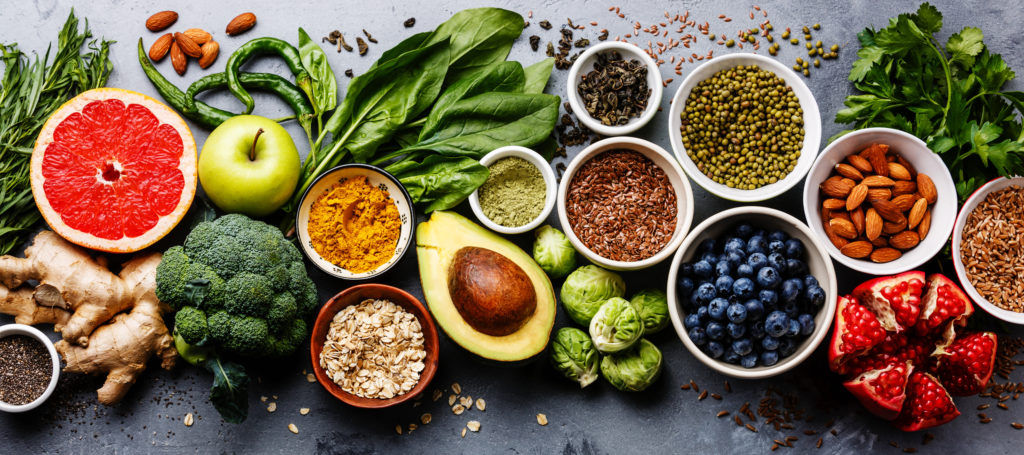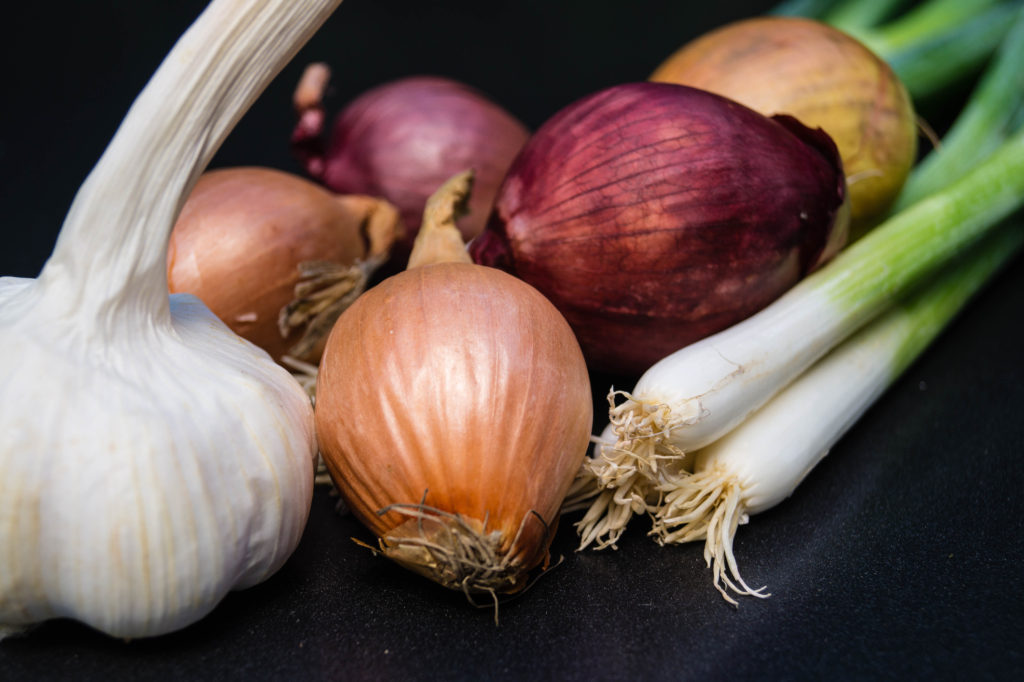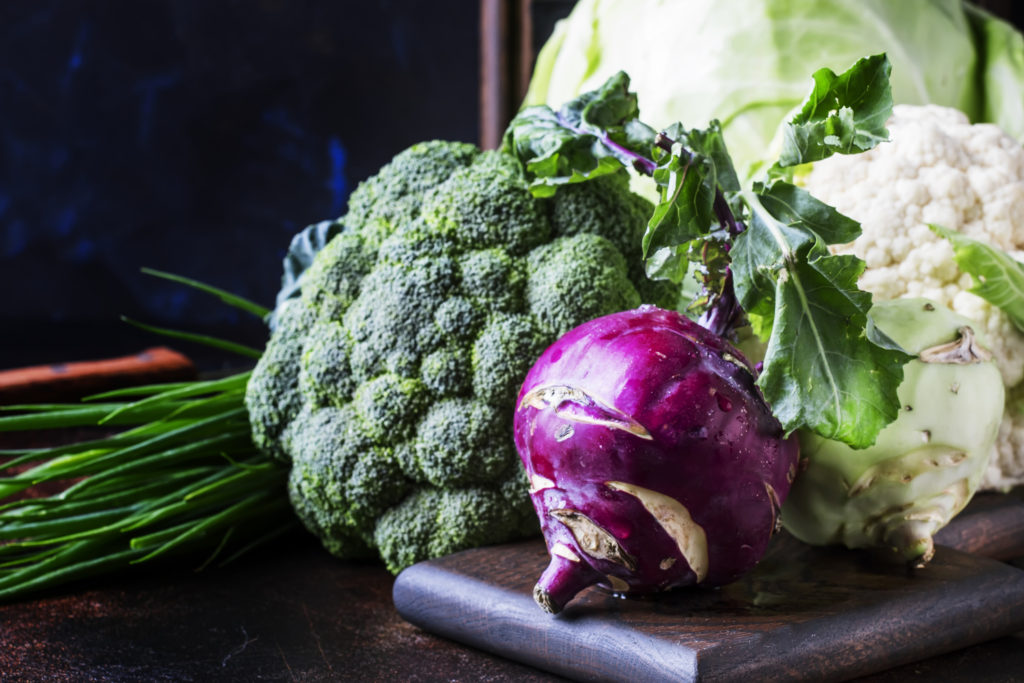How You Can Reduce Chronic Inflammation


![]() (This is the first in our series on the nine benefits at the core of FoodTrients® and all of our recipes. We’ll explore each of these incredible anti-aging nutrients and how they help fight the diseases of aging.)
(This is the first in our series on the nine benefits at the core of FoodTrients® and all of our recipes. We’ll explore each of these incredible anti-aging nutrients and how they help fight the diseases of aging.)
Inflammation has been linked to many chronic health conditions from autoimmune disease, cancer, heart disease and diabetes, when it occurs at high levels in the body over a period of time. Defining what it is, when it’s helpful, when it’s not, and what to do about it is critical if you’re focused on optimizing your health. As we explore each FoodTrient and how they affect your health, let’s start with anti-inflammatory.
 Understanding Inflammation
Understanding Inflammation
Inflammation is the body’s natural reaction to a stressor. Anything that puts stress on the body: an injury, a virus or bacterial infection, food sensitivity or allergy, or even a hard workout. This causes acute inflammation which is helpful when it is short-lived, like fitness, and the body has time to rest and recover, creating strength. In a prolonged state of inflammation, the body is continually in a state of stress which can lead to digestive problems, reduce the body’s ability to heal, lower immunity, and a host of other serious problems and diseases. Chronic inflammation can lead to an imbalance throughout the body.
The good news about chronic inflammation is that there are ways to reduce it through diet and lifestyle changes.
Proven Ways To Help Manage Long-term Inflammation
 Diet: “Eat the rainbow” because different colors in fruits and vegetables relate to different antioxidants and benefits. For instance, orange and yellow fruits and vegetables contain vitamin A which is important in immunity and eye health, while white foods — think onions, garlic — have allicin which can support healthy aging and heart health. You’ll notice that many FoodTrients® anti-inflammatory options are colorful foods.
Diet: “Eat the rainbow” because different colors in fruits and vegetables relate to different antioxidants and benefits. For instance, orange and yellow fruits and vegetables contain vitamin A which is important in immunity and eye health, while white foods — think onions, garlic — have allicin which can support healthy aging and heart health. You’ll notice that many FoodTrients® anti-inflammatory options are colorful foods.
 Exercise: Moving your body on a regular basis helps decrease inflammation, boost circulation and immunity, and improve sleep and mood. When doing higher impact exercise remember: recovery is key! Give your body time to reap the benefits of fitness with consistent bouts of activity.
Exercise: Moving your body on a regular basis helps decrease inflammation, boost circulation and immunity, and improve sleep and mood. When doing higher impact exercise remember: recovery is key! Give your body time to reap the benefits of fitness with consistent bouts of activity.
 Sleep: sleep affects hormone levels, food choices, the immune system, inflammation, and even body weight. Lack of sleep can lead to increased inflammation both directly and indirectly. One important factor to consider with inflammation is the quantity and quality of your sleep.
Sleep: sleep affects hormone levels, food choices, the immune system, inflammation, and even body weight. Lack of sleep can lead to increased inflammation both directly and indirectly. One important factor to consider with inflammation is the quantity and quality of your sleep.

- Stress reduction: Decreasing emotional stress is also important for controlling inflammation. Taking adequate time to relax through meditation, yoga, breathing, and/or mindfulness have been proven to decrease stress, which in turn impacts inflammation positively.
 Anti-inflammatory Foods
Anti-inflammatory Foods
Anti-inflammatory diets such as the Mediterranean diet can reduce chronic inflammation due to the biochemicals in food that work synergistically in the body. Here are some ways the compounds in plants can help lower inflammation over time and why diet matters so very much:
Anti-inflammatory Powerhouses
- Avocado — high in heart healthy fats as well as antioxidant vitamins, magnesium, potassium, and fiber.
- Berries — brightly colored berries are high in antioxidants and other anti-aging and anti-inflammatory compounds you can only find in purple and red foods.
 Crucifers – this powerful class of vegetables includes sulfur-containing options like kale, broccoli, cauliflower, and Brussels sprouts which can help lower inflammation, reduce the risk of certain cancers, and are key in the body’s detoxification system.
Crucifers – this powerful class of vegetables includes sulfur-containing options like kale, broccoli, cauliflower, and Brussels sprouts which can help lower inflammation, reduce the risk of certain cancers, and are key in the body’s detoxification system.- Salmon – rich in omega-3 fatty acids, cold-water fish helps activate anti-inflammatory pathways in the body and has powerful ways to reduce chronic inflammation. It is recommended that you include seafood twice a week.
- Walnuts – contain healthy fats that help keep blood vessels healthy and functioning well. Walnuts are plant-sources of omega-3 fatty acids.
Making lifestyle changes to address inflammation can have a huge impact on long term health. Studies have shown that inflammation is directly involved with aging and age-related conditions. Making efforts to reduce chronic inflammation is an important part of healthy aging and it’s a very important FoodTrient.
Anti-Inflammatory Foods Fight Disease
 Anti-Inflammatory
Anti-Inflammatory
Anti-Inflammatory Foods: the Top 10
 Antioxidants
Antioxidants
Antioxidants Help Slow Down Premature Aging
 Beauty
Beauty
Beauty Is So Much More Than Skin Deep
 Detox
Detox
Which Foods Are Best To Help You Detox?
 Disease Prevention
Disease Prevention
Meet the Best Foods for Disease Prevention
 Gut health
Gut health
Good Gut Health Helps Prevent Diseases – FoodTrients
 Immunity Booster
Immunity Booster
How To Support Your Immune System Naturally
![]()
Strength
Strength-Building Food Is Key to Aging Well
References
- Barnes, S., Prasain, J., & Kim, H. (2013). In nutrition, can we “see” what is good for us?. Advances in nutrition (Bethesda, Md.), 4(3), 327S–34S.
- Hinterdobler, J., Schunkert, H., Kessler, T., & Sager, H. B. (2021). Impact of Acute and Chronic Psychosocial Stress on Vascular Inflammation. Antioxidants & redox signaling, 35(18), 1531–1550.
- DeMartino, T., Ghoul, R. E., Wang, L., Bena, J., Hazen, S. L., Tracy, R., Patel, S. R., Auckley, D., & Mehra, R. (2016). Oxidative Stress and Inflammation Differentially Elevated in Objective Versus Habitual Subjective Reduced Sleep Duration in Obstructive Sleep Apnea. Sleep, 39(7), 1361–1369.
- Fürst, R., & Zündorf, I. (2014). Plant-derived anti-inflammatory compounds: hopes and disappointments regarding the translation of preclinical knowledge into clinical progress. Mediators of inflammation, 2014, 146832.
- Chung, H. Y., Kim, D. H., Lee, E. K., Chung, K. W., Chung, S., Lee, B., Seo, A. Y., Chung, J. H., Jung, Y. S., Im, E., Lee, J., Kim, N. D., Choi, Y. J., Im, D. S., & Yu, B. P. (2019). Redefining Chronic Inflammation in Aging and Age-Related Diseases: Proposal of the Senoinflammation Concept. Aging and disease, 10(2), 367–382.